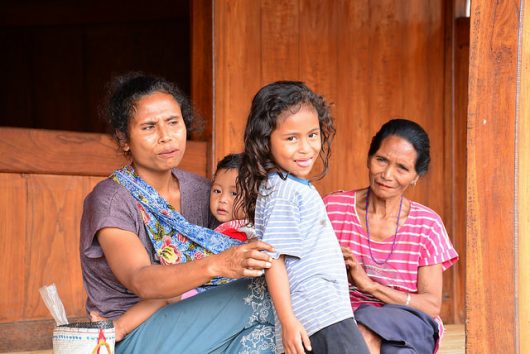Malaria Epidemic in Indonesia

Global organizations have made significant strides in fighting the malaria epidemic in Indonesia by focusing on the health and welfare of pregnant women and children.
In an article published by IRIN, William Hawley, a malaria expert with the U.N. Children’s Fund (UNICEF), highlighted the importance of malaria treatment and prevention against the disease.
“Pregnant women and children are especially vulnerable to malaria, and modern malaria diagnosis and prevention can be delivered via existing maternal health and immunization services in a symbiotic way,” Hawley said.
World health organizations such as UNICEF have been working closely with Indonesian government agencies and world health programs to provide free and affordable care to women and children in the region.
“The malaria program, the antenatal care program, and the expanded program on immunization all benefit, but most important — women and kids benefit,” Hawley said.
According to the article by IRIN, nurses and midwives have been helping pregnant women and infants fight malaria by providing diagnosis, treatment and information regarding the disease. In response, more women have been provided antenatal care and more children have been immunized against malaria.
The Harsh Effects of the Malaria Epidemic in Indonesia
Malaria is a disease spread by mosquitoes causing symptoms including fever, exhaustion, vomiting, and headaches. Severe cases generally include yellowing of the skin, seizures, coma, or, in the most extreme instances, death.
The disease can be more dangerous to pregnant women and infants causing stillbirths, low birth weight, abortion and infant mortality. Malaria can also cause severe respiratory problems in both adults and children.
According to a report published by the World Health Organization (WHO), out of a population of close to 260 million, 190 million people were reportedly malaria free in 2015. This comes after a significant number of cases were reported between 2009 and 2012.
With the help of finances provided by the Global Fund, WHO, and UNICEF, residents of Indonesia have access to preventative measures against the disease in the form of mosquito nets, insect repellents, and insecticides. Residents are also taught the importance of mosquito control measures such as draining water to prevent reproduction.
According to a report by the CDC, with funding from UNICEF, USAID, the Gates Foundation and the Ministry of Health (MOH), many preventative programs have been integrated into immunization and prenatal care programs in five provinces in eastern Indonesia.
These organizations hope to expand to all areas where the disease continuously occurs to help fight the malaria epidemic in Indonesia.
– Drew Hazzard
Photo: Flickr
